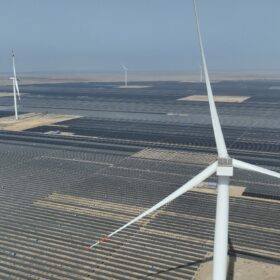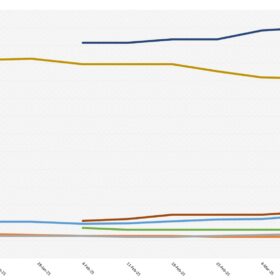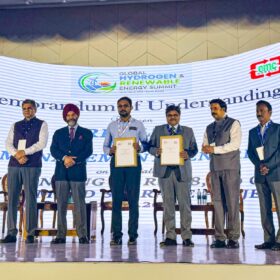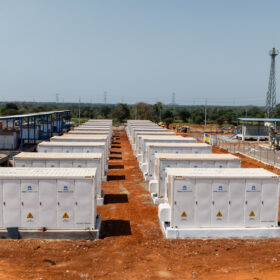To accelerate global progress in energy efficiency, it is crucial to actively promote for integrated policy approaches, increased investments in Energy Service Companies (ESCOs), and the adoption of cutting-edge technology further aligning with the G20’s commitment to drive advancements in energy efficiency. The report titled “Doubling Global Energy Efficiency Progress: How the G20 can Lead the Way” underscores the global commitment, as evidenced by the G20 New Delhi Declaration, to double the rate of energy efficiency improvements by 2030.
The report launch took place at the fourth edition of Forum on Energy Efficiency and Decarbonisation 2024 (FEED 2024), the annual flagship event of Alliance for an Energy Efficient Economy (AEEE).
Commenting on the report launch, Dr Satish Kumar, President and Executive Director, AEEE said, “The interplay between energy efficiency and climate change is undeniable. The transformative landscape shifts in 2023 highlighted the critical role of energy efficiency, marking a significant milestone after three decades. Collaborating with BEE and the Ministry of Power during the G20, AEEE and other partners played a pivotal role in shaping strategic energy efficiency plans across sectors.” This report reflects the heightened attention to energy efficiency, signalling a collective stride towards resilience in the face of climate challenges on a broader scale, he further said.
The report focuses on building energy codes, electric motors, and the role of ESCOs in doubling the global rate of energy efficiency improvement. The findings reveal the critical importance of robust enforcement mechanisms for building energy codes, recommendations on transitioning to high-efficiency motors, and the transformative role of ESCOs in achieving ambitious energy efficiency targets.
During the keynote address at the event, Shri Abhay Bakre, Director General, Bureau of Energy Efficiency, drew attention to India’s Nationally Determined Contribution (NDC) which places a significant emphasis on energy efficiency as a cornerstone for achieving its climate goals, and that energy efficiency has the potential to help meet up to 40% of the emission reduction target of the NDCs. He spoke of India’s leadership in creating collaborative platforms, particularly during its G20 presidency, which has been instrumental in fostering a global dialogue on energy efficiency.
Shri Abhay Bakre, emphasised on the need for mapping and quantifying the potential of energy efficiency measures across different sectors. It calls for a collective effort to bring together diverse actors, including think tanks, consultants, auditors, and manufacturers, to realise the vast opportunities in energy efficiency. He stressed that this mobilisation of stakeholders is crucial for driving high-impact initiatives and leveraging platforms like the Clean Energy Ministerial, G20, and other such platforms for maximum effect.
FEED continues to play a pivotal role in shaping the future of sustainable energy practices. Recognising the imperative nature of decarbonisation and smart energy management in the journey toward a net-zero economy, this flagship program of AEEE remains committed to fostering knowledge transfer and promoting technology adoption across India’s energy value chain. Serving as a dynamic platform, FEED 2024 facilitated interactions among stakeholders within the country’s energy ecosystem, creating avenues for collaborative exploration and enhanced business competitiveness through the twin pillars of energy efficiency and decarbonisation. This two-day event convened over 80 distinguished speakers and gathered interest from 1.2K+ stakeholders from across 625 industry, government bodies and institutions.
About Alliance for an Energy-Efficient Economy
Alliance for an Energy-Efficient Economy (AEEE) is India’s leading policy support and implementation organization, enabling the energy efficiency market with a not-for-profit motive. With an industry-led approach, AEEE drives all-inclusive policy research, innovation, and on-ground impact, targeting national and state-level energy and emission reductions while improving the quality of life of the most vulnerable. The three key goals of AEEE are ambitious: enabling 100 GW of demand offset, facilitating INR 100,000 crores in green investments, and empowering 500K+ green professionals for India’s net-zero ambition. AEEE brings together government, industry, civil society organizations, and key stakeholders to promote energy efficiency as a resource and transform the market for energy-efficient products and services, thereby contributing to meeting India’s energy security goals, clean energy, and climate change. Know more at www.aeee.in





